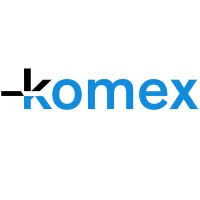-
-
Qualitative Comparative Analysis (QCA) Workshop at GSERM, St. Gallen
GSERM, University of St. Gallen Tellstrasse 2 9000 St. Gallen, St. Gallen, SwitzerlandThe goal of this workshop is to provide a ground-up introduction to Qualitative Comparative Analysis (QCA) and fuzzy sets. Participants will get intensive instruction and hands-on experience with the fsQCA software package and on completion should be prepared to design and execute research projects using the set-analytic approach. For further details, please see link below.
CHF1100 – CHF2000 -
-
Qualitative Comparative Analysis (QCA): An Introduction (Online 4 Days)
OnlineCourse syllabus:
Day 1
6:30-7:00, Introductory session:
Who is who? Why have you chosen this course? What do you expect to get out of it?
What are we going to do over the next two days? What are we not going to do?
7:00-8:00, Epistemological foundations of QCA:
What are the epistemological foundations of QCA?
Where is QCA positioned in relation to case-oriented and variable-oriented research?
8:00-9:30, Exercise
The essence of QCA: logical minimization (and truth tables)
To get an understanding of the very basics of QCA, we will carry out a QCA analysis by hand.
Once we get the basics of QCA, we will explore data with an Excel add-in.Day 2
6:30-7:00, Conjunctural causation, equifinality, (data) asymmetry
What is conjunctural causation? What is equifinality? What is (data) asymmetry? Where do we see it in the world?
Whether/where do you expect conjunctural causation, equifinality, and/or (data) asymmetry in your field of research?
7:00-8:00, What can QCA be used for?
Data analysis, literature reviews, theory building, case selection, robustness tests
8:00-9:00, Further and future development of QCA as a method
Crisp set (cs) and fuzzy set (fs) QCA
Ongoing critique to QCA as a method
9:00-9:30, Open discussion, recap of the basic terminology and concepts:
Condition, outcome, conjunctural causation, equifinality, asymmetry, necessary condition, sufficient condition, logical minimisation.Day 3
6:30-8:00, What ahve we learned so far?
Exploring more datasets using the Excel add-in.
8:00-8:30, How easy is it to use QCA?
Jeroen's experiences with using QCA in small and multi-year research projects.
8:30-9:30, The most common challenges when applying QCA (and how to deal with them)
Is the number of cases you have all that matters?
How many conditions can be included in the theoretical model?
What is limited diversity and what to do about it?Day 4
6:30-7.30, Step 4: Calibration of Data
What is data calibration? Why is it so important (and often time consuming) in QCA?
How to Calibrate your data (for csQCA and fsQCA).
7:30-8:00, Open discussion, calibrating your own data
What challenges do you expect to encounter in callibrating your own data?
8:30-9:30, Important research design choices
Good practice to follow (a guideline)
Open discussion: where, why and how do you want to use QCA in your (future) research?
What are your hopes and concerns in applying QCA?During the course, there will be the opportunity for participants to have a one-hour one-on-one meeting with the instructor outside class hours.
$720 – $2280 -
Qualitative Comparative Analysis (QCA): A set-analytic approach to studying organizational configurations
OnlineThis 3-day introduces you to the nuts and bolts of QCA. It is structured in six sessions (each ½ day) covering the history of QCA, the logic of case selection and research designs, small-N QCA, large-N QCA, configurational research in management, and advanced topics in QCA. Throughout the course, we will also explore opportunities for … Continue reading Qualitative Comparative Analysis (QCA): A set-analytic approach to studying organizational configurations
500€ -
Qualitative Comparative Analysis (QCA): An Application in 10 Steps (Online 4 Days)
OnlineThis master class is designed for participants who are familiar with the basics of QCA. Participants without any QCA experience or previous formal QCA training first complete the master-class, "Qualitative Comparative Analysis: An introduction" (July 1-4, online). The master class is a mix of lectures and exercises—the emphasis is on lectures, however (one of the … Continue reading Qualitative Comparative Analysis (QCA): An Application in 10 Steps (Online 4 Days)
$720 – $2280 -
“Intro to Qualitative Comparative Analysis”, 5-day remote workshop
Online• Covers the entire standard QCA workflow: choice of conditions; calibration; analysis of necessity; truth table building and processing; minimization and result interpretation; robustness assessment • We reproduce a published QCA study to go through each of these steps • Fully guided introduction to QCA research using RStudio (no prior knowlede required) • 5 days, … Continue reading “Intro to Qualitative Comparative Analysis”, 5-day remote workshop
§1600 – §2900 -
-
28th Summer School in Social Science Methods: Qualitative Comparative Analysis: Research Design and Application
Università della Svizzera italiana (USI), Lugano West Campus Via Giuseppe Buffi 13, Lugano, SwitzerlandThis workshop provides participants with a thorough introduction to Qualitative Comparative Analysis (QCA). Since its inception (Ragin 1987), QCA has gained recognition among social scientists as a case-based research method that is ideally suited to capture causal complexity. This essentially describes a situation where an outcome results from multiple pathways and different combinations of conditions. … Continue reading 28th Summer School in Social Science Methods: Qualitative Comparative Analysis: Research Design and Application
€700 – €1100 -
-
4th Japan Workshop on QCA
Waseda University Tokoyo, JapanSince Charles Ragin proposed the idea in his book "The Comparative Method" in 1987, Qualitative Comparative Analysis (QCA) and the related methods have been used in recent years not only in sociology and political science, but also in business, law, medicine, and policy evaluation. The publication of many textbooks (e.g., Mello 2023) provides various opportunities … Continue reading 4th Japan Workshop on QCA
Free -
-

European QCA Conference: Paper Development Workshop
Tilburg University Tilburg, NetherlandsThe Paper Development Workshop at the European QCA Conference 2024 provides a unique platform for QCA researchers to get feedback on their QCA papers and to meet QCA experts. The organizers invite submission from researchers using QCA for the first time or who are at a mid or advanced stage of applying QCA. It is … Continue reading European QCA Conference: Paper Development Workshop
-

European QCA Conference (Expert Workshop)
Tilburg University Tilburg, NetherlandsThe Expert Workshop at the European QCA Conference in 2024 will take place on Wednesday December 11 and Thursday December 12 at Tilburg University, The Netherlands. The Expert Workshop is a unique platform to discuss the latest developments in QCA and related methods. In this call for abstracts, we invite submissions from experienced QCA researchers … Continue reading European QCA Conference (Expert Workshop)
-
-

Konstanz Methods Excellence Workshops (KOMEX): Basic Introduction to R for Beginners (online)
OnlineIn early February 2024, komex offers the course Microcredential ekomex A Basic Introduction to R for Beginners. This 2-day virtual course introduces the open-source statistical software R for beginners. It is designed for students without prior experience of R/RStudio. It teaches the basics of R and RStudio, namely, how to perform basic descriptive statistics and … Continue reading Konstanz Methods Excellence Workshops (KOMEX): Basic Introduction to R for Beginners (online)
180 EURO
10 events found.
